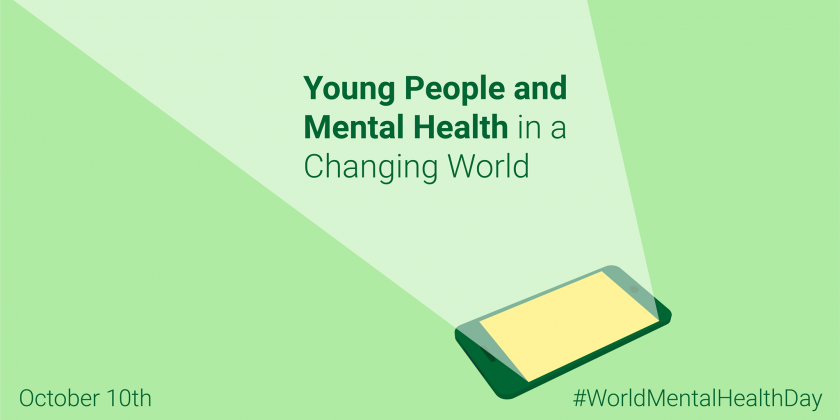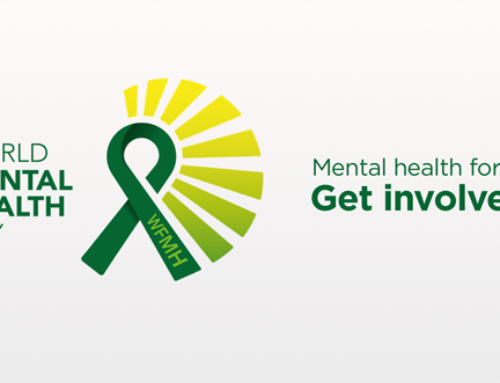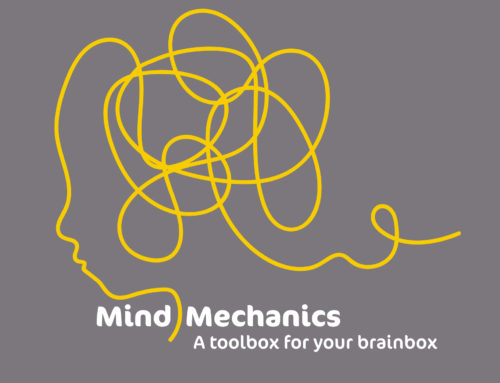World Mental Health Day is a day for global mental health education, awareness and advocacy against social stigma.
As this year’s theme is “Young people and mental health in a changing world” I thought I would write a few words about how our work at Edge is addressing these issues with our Mind Mechanics at School mental health education programme.

Children and Young People
Adolescence and the early years of adulthood are a time of life when many changes occur, both environmental and neurobiological.
Teenagers are faced with mounting pressure at school and in their social lives. The curriculum has narrowed and the focus has returned to end of course exams. Older adolescents may be leaving home, and starting university or a new job. For many, these are exciting times but for some they can also be times of stress and apprehension.
In some cases, if not recognized and managed, these feelings can lead to mental illness. The expanding use of online technologies, while undoubtedly bringing many benefits, can also bring additional pressures, as connectivity to virtual networks at any time of the day and night grows.
Half of all mental illness begins by the age of 14
Half of all mental illness begins by the age of 14, but most cases go undetected and untreated. In terms of the burden of the disease among adolescents, depression is the third leading cause.
Suicide is the second leading cause of death among 15 to 29-year-olds. Harmful use of alcohol and illicit drugs among adolescents is a major issue and can lead to risky behaviours such as unsafe sex or dangerous driving. Eating disorders are also of significant concern during this period of development.
Growing recognition of the importance of building mental resilience
Fortunately, there is a growing recognition of the importance of helping young people to build mental resilience, from the earliest ages, in order to cope with the challenges of today’s world.
Evidence is growing that promoting and protecting adolescent health brings benefits not just to adolescents’ health, both in the short and the long-term, but also to economies and society in general – with healthy young adults able to make greater contributions to the workforce, the ir families, communities and society as a whole.
Prevention begins with better understanding and access to expertise
We are living in times of huge cuts to public services whereby children’s mental health services simply cannot meet demand.
As an education practitioner who has worked in the field of special educational needs for almost 30 years my experience in the past eight to 10 years has been a real deterioration in children and adolescents’ ability to access services – the thresholds have changed considerably.
The Association of Child Psychotherapists says it has heard of cases of children having to make multiple suicide attempts in order to access care.
Nick Waggett, in a recent programme on Panorama, said: “We do hear stories of children and young people having to have attempted suicide on a number of occasions actually before they are seen within the service. The problem is that then they’re very ill and it actually becomes increasingly difficult to offer them an effective treatment.”
According to the CQC, evidence suggests the number of children visiting A&E for mental health treatment has more than doubled since 2010.
Dr Jon Goldin, of the Royal College of Psychiatrists, said the system was unable to meet the demand: “I have colleagues working all over the country who are… doing excellent work, the trouble is the services are very stretched. We’re not meeting the need so in that sense it’s not fit for purpose.”
This is the reason why the Edge team have been developing the Mind Mechanics at School programme for the past two years. We are aware of the impending crisis and want to use our expertise to help make a difference to young lives.
We have now come up with a number of creative ways for schools to fund Mind Mechanics and are keen to talk to you about how we might address funding challenges to avert the crisis in mental health care in your school.
Please call us for a chat on 07790 500487 or email hello@edgeinc.co.uk



Leave A Comment